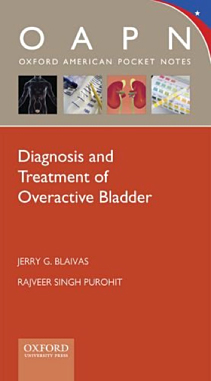Enuresis Treatment
Treatment should be predicated on a clear understanding of the underlying cause. Of course, if the enuresis is a symptom of a neurologic condition like multiple sclerosis or spinal cord tumor, those must be fully evaluated and treated whenever possible. In some situations, treatment of the neurologic condition will cure the enuresis; in others, a specific treatment will need to be specially made for the individual.
If overflow incontinence is the cause – although it is exceedingly rare unless the woman has had prior urethral surgery – it is still possible (and likely) that the underlying problem is urethral obstruction which should be treated as just discussed. If the bladder doesn’t work at all, a careful search for a neurologic etiology should be undertaken, but in the meantime, intermittent self catheterization should be begun. Intermittent self catheterization (SIC) is a method of emptying the bladder when you cannot urinate normally. It may be used as a temporary means while you are awaiting or undergoing treatment, or it may be part of a permanent treatment program. With this technique, you pass a catheter through the urethra into your bladder to empty the urine. It is usually done 3 – 6 times a day, depending on how much urine your bladder can safely hold. Even though it sounds gruesome, SIC is actually quite safe, easy and painless. Only in the rarest of circumstances should an indwelling catheter be used. This may be necessary if the person is unable to catheterize him or herself because of severe disability.
Consider the case of Suzanne, a 53 year old, married art dealer. For as long as she could remember she urinated much less frequently than her friends, she could go all day without voiding even once! Then she had a single episode of enuresis and she happened to mention it to her gynecologist, who on examination felt an enormous pelvic mass. He thought she had ovarian cancer, but ultrasound showed it to be a huge, distended bladder that contained over two liters of urine. Both kidneys were blocked as well and videourodynamic study confirmed bladder neck obstruction. This is an exceedingly rare condition. Suzanne was started on intermittent self catheterization and doxazosin. After three months the kidneys returned to normal. However, she was unable to urinate at all and repeat videourodynamic study again showed a bladder neck obstruction. We performed a transurethral resection of the bladder neck over a 5 years ago and ever since she’s voided to completion and never has day or night incontinence and her kidneys have continued to be normal.
For women with enuresis due to involuntary bladder contractions from neurologic conditions (detrusor hyperreflexia) treatment is much more difficult. For most of the neurologic conditions, there is currently no cure, so the enuresis needs to be treated from a symptomatic viewpoint. For some patients, behavior modification is very effective for others anticholinergic medications (which stop the bladder from contracting involuntarily may be effective.
Occasionally, people with sphincter abnormalities have enuresis, but this is, for practical purposes always associated with severe daytime incontinence. Treatment of the daytime incontinence cures the enuresis as well.
One more thing. Many of the conditions that cause adult onset enuresis also cause silent kidney damage due to high pressures in the bladder. Therefore, it is important to obtain blood tests for kidney function (BUN & creatinine) and a renal ultrasound to be sure that there is not a blockage to the kidney.
Why Choose a Uro Center Urologist in New York?
The urologists at the Uro Center in New York are experts in their field, bringing academic and research based innovation to the clinical forefront. Our urology team specializes in areas of treatment such as: robotic surgery, reconstructive urology, men’s health & infertility, kidney stones, urologic oncology, penile implant surgery, urethral stricture, BPH, Urinary incontinence treatment, Mesh complications, Enlarged prostate treatment, Urodynamics, vesicovaginal fistula and female incontinence in New York.
Request an Appointment











